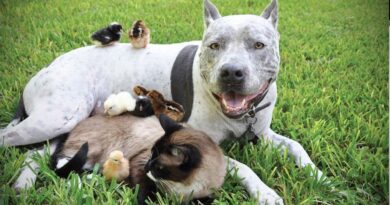O que é Derivação de raças
What is Breed Derivation?
Breed derivation refers to the process through which different dog breeds have evolved over time from common ancestors. This evolution has been influenced by various factors including geographical location, human intervention, and specific breeding goals. Understanding breed derivation is essential for dog enthusiasts, breeders, and potential pet owners alike, as it provides insight into the characteristics and behaviors of different breeds.
The Historical Context of Breed Derivation
Historically, dogs were domesticated from wolves, and over thousands of years, selective breeding has led to the creation of distinct breeds. This selective breeding was often based on the specific needs of humans, such as hunting, herding, or companionship. The historical context of breed derivation highlights how human needs have shaped the traits and abilities of various dog breeds.
Factors Influencing Breed Derivation
Several factors influence breed derivation, including environmental conditions, human preferences, and genetic variations. For instance, dogs bred in colder climates often have thicker fur, while those in warmer regions may have shorter coats. Additionally, the purpose for which a breed was developed—such as herding, guarding, or companionship—plays a significant role in its physical and behavioral traits.
The Role of Genetics in Breed Derivation
Genetics is a fundamental aspect of breed derivation. Each breed has a unique genetic makeup that determines its physical characteristics, temperament, and health predispositions. Understanding the genetic factors involved in breed derivation can help breeders make informed decisions to enhance desirable traits and reduce the risk of hereditary health issues.
Modern Breeding Practices and Their Impact
In contemporary times, breeding practices have evolved significantly. Responsible breeders focus on maintaining genetic diversity and health within breeds, while also adhering to breed standards. However, some breeders may prioritize appearance over health, leading to potential issues within certain breeds. This highlights the importance of ethical breeding practices in the context of breed derivation.
Common Misconceptions About Breed Derivation
There are several misconceptions surrounding breed derivation. One common myth is that mixed-breed dogs are less desirable than purebreds. In reality, mixed-breed dogs can exhibit a wide range of positive traits and often benefit from hybrid vigor. Understanding these misconceptions is crucial for promoting a more inclusive view of dog ownership.
The Importance of Breed Derivation Knowledge
Knowledge of breed derivation is vital for prospective dog owners. It helps them choose a breed that aligns with their lifestyle, preferences, and living conditions. Additionally, understanding the historical and genetic background of a breed can aid in recognizing potential health issues and behavioral traits, leading to a more harmonious relationship between the dog and its owner.
Breed Derivation and Dog Shows
Dog shows often emphasize the importance of breed derivation by showcasing purebred dogs that meet specific breed standards. These events celebrate the unique characteristics of each breed and promote responsible breeding practices. Understanding the role of breed derivation in dog shows can enhance appreciation for the diversity and heritage of different breeds.
The Future of Breed Derivation
The future of breed derivation is likely to be influenced by ongoing research in genetics and breeding practices. As we learn more about canine genetics, there may be shifts in how breeds are developed and maintained. This evolution could lead to healthier dogs and a better understanding of the relationship between breed characteristics and behavior.



